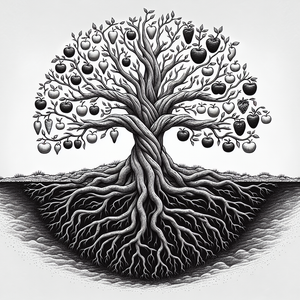The Influence of Instagram Fashion Influencers on Trends

The emergence of social media has revolutionized the fashion industry, with Instagram at the forefront of this transformation. Influencers—individuals who have gained substantial followings by sharing their personal style, fashion insights, and lifestyle—have become key players in shaping public perception. Unlike traditional celebrities, influencers often connect with their audiences on a more personal level, presenting an authentic and relatable image that resonates deeply. For instance, influencers like Chiara Ferragni and Aimee Song have built brands that transcend fashion, creating entire empires through their unique aesthetics and engaging content. Their ability to showcase outfits, styling tips, and lifestyle choices in visually appealing ways has garnered millions of followers, making them trendsetters in their own right. The authenticity and relatability found in their content contribute to their influence, making them more approachable than traditional fashion icons.
Curated Aesthetics and the Pursuit of Perfection
One of the defining features of Instagram is its visual-centric nature. This platform allows influencers to create a carefully curated aesthetic that not only represents their personal style but also sets trends. The power of imagery cannot be underestimated; a single post can inspire thousands of individuals to adopt a new look, thereby influencing consumer behavior on a massive scale. For example, when an influencer shares a photo wearing a specific brand or style, it often leads to a spike in searches and sales for that item. This is particularly evident in the rise of 'Instagrammable' fashion—pieces designed specifically to catch the eye of camera lenses and fit seamlessly into the feeds of followers. In 2020, a report by the fashion search platform Lyst indicated that searches for certain items, like puff-sleeve tops, increased dramatically after influencers showcased them, highlighting the direct correlation between influencer posts and consumer purchasing behavior. Brands have recognized this trend, leading to collaborations with influencers who can showcase their products in a way that feels organic and relatable. Campaigns featuring influencers often generate buzz and drive engagement, allowing brands to tap into new customer bases through authentic endorsements.
The Psychology Behind Influence
The influence of Instagram fashion influencers extends beyond mere aesthetics; it taps into fundamental psychological principles. Social proof, the phenomenon where individuals look to others to determine acceptable behavior, plays a significant role in this dynamic. When followers see their favorite influencers donning a particular outfit or accessory, they are more likely to perceive it as desirable and align their own purchasing decisions accordingly. Additionally, the concept of aspirational living is prevalent in influencer culture. Many followers view influencers as lifestyle guides, aspiring to emulate their fashion choices, travel experiences, and overall lifestyle. This aspirational quality drives engagement and fosters loyalty among followers, as they seek to connect with the lifestyles they admire. For example, influencers often share not just fashion, but also snippets of their lives, from travel to home decor, creating a holistic lifestyle package that followers aspire to.
Implications for Brands and Consumers
For fashion brands, collaborating with influencers has become an essential component of marketing strategies. Brands recognize that influencers can reach target demographics more effectively than traditional advertising methods. Influencer partnerships often result in higher engagement rates and conversion, as followers trust recommendations from individuals they admire more than generic advertisements. A study by the Influencer Marketing Hub found that businesses earn an average of $5.78 for every dollar spent on influencer marketing, underscoring the effectiveness of this strategy. However, this shift also presents challenges. The saturation of influencers in the market has led to a rise in 'influencer fatigue,' where consumers become overwhelmed by constant promotions. Brands must navigate this landscape carefully, selecting influencers whose values align with their own and whose audiences genuinely resonate with their products. This necessitates a strategic approach to influencer partnerships, focusing on authenticity and relevance over sheer follower count. For consumers, the influence of fashion influencers can be both empowering and overwhelming. While they offer inspiration and accessibility to new trends, the pressure to keep up with ever-changing styles can lead to feelings of inadequacy. It is essential for consumers to approach influencer content critically, recognizing that trends are often fleeting and personal style should ultimately reflect individual preferences rather than external pressures. The challenge lies in finding balance—drawing inspiration from influencers while staying true to oneself.
Instagram fashion influencers have reshaped the landscape of the fashion industry, wielding significant power in influencing trends and consumer behavior. Their curated aesthetics, relatable personas, and strategic collaborations with brands have redefined marketing strategies and created new avenues for fashion communication. As this dynamic continues to evolve, both brands and consumers must navigate the complexities of influencer culture, recognizing its potential for inspiration while remaining grounded in their unique identities. Ultimately, the influence of Instagram fashion influencers serves as a testament to the power of social media in shaping not just trends, but the very fabric of the fashion industry itself. As Instagram continues to grow, the influence of these fashion gatekeepers will likely become even more pronounced, making it essential for all stakeholders in the fashion world to adapt to this new reality.
Social Media Fashion Manager
Fashion brands (e.g., ASOS, Zara), marketing agencies, and lifestyle companies.
Core Responsibilities
Develop and implement social media strategies to enhance brand visibility and engage with target audiences.
Collaborate with fashion influencers to create authentic partnerships and marketing campaigns that resonate with followers.
Analyze social media metrics to assess campaign performance and adjust strategies accordingly.
Required Skills
Strong understanding of fashion trends and influencer culture.
Proficiency in social media analytics tools (e.g., Hootsuite, Sprout Social).
Excellent communication and negotiation skills for influencer collaborations.
Influencer Marketing Specialist
E-commerce platforms (e.g., Shopify, Amazon), fashion brands, and PR firms.
Core Responsibilities
Identify and engage with potential influencers to promote brand products and initiatives.
Create and manage influencer campaigns, ensuring alignment with brand values and marketing goals.
Monitor campaign performance and provide reports on ROI and engagement metrics.
Required Skills
Expertise in social media platforms and influencer marketing trends.
Strong analytical skills to evaluate influencer impact and audience engagement.
Creative thinking for developing innovative marketing strategies and content.
Fashion Content Creator
Fashion magazines, digital marketing agencies, and independent fashion labels.
Core Responsibilities
Develop visually appealing content (photos, videos, blogs) that showcases fashion products or trends.
Curate and manage social media feeds to maintain a cohesive brand aesthetic.
Collaborate with brands and influencers to produce engaging promotional content.
Required Skills
Proficiency in photography and video editing software (e.g., Adobe Creative Suite).
Strong knowledge of current fashion trends and digital marketing.
Ability to create compelling narratives that resonate with audiences.
Brand Partnership Manager
Fashion tech startups, advertising agencies, and lifestyle brands.
Core Responsibilities
Develop and maintain relationships with fashion brands and influencers for collaborative campaigns.
Negotiate contracts and terms for influencer partnerships, ensuring mutual benefits and brand alignment.
Monitor market trends and competitor activity to inform partnership strategies.
Required Skills
Excellent project management and organizational skills.
Strong interpersonal skills for building relationships with influencers and brand representatives.
In-depth understanding of influencer marketing and consumer behavior in the fashion industry.
Fashion Trend Analyst
Fashion forecasting agencies (e.g., WGSN), market research firms, and fashion retailers.
Core Responsibilities
Conduct market research to identify emerging fashion trends and consumer preferences.
Analyze social media and influencer content to assess the impact of trends on consumer behavior.
Provide insights and recommendations to brands for product development and marketing strategies.
Required Skills
Strong analytical and research skills with a focus on data interpretation.
Knowledge of fashion history and current trends in the industry.
Excellent written and verbal communication skills for reporting findings.


